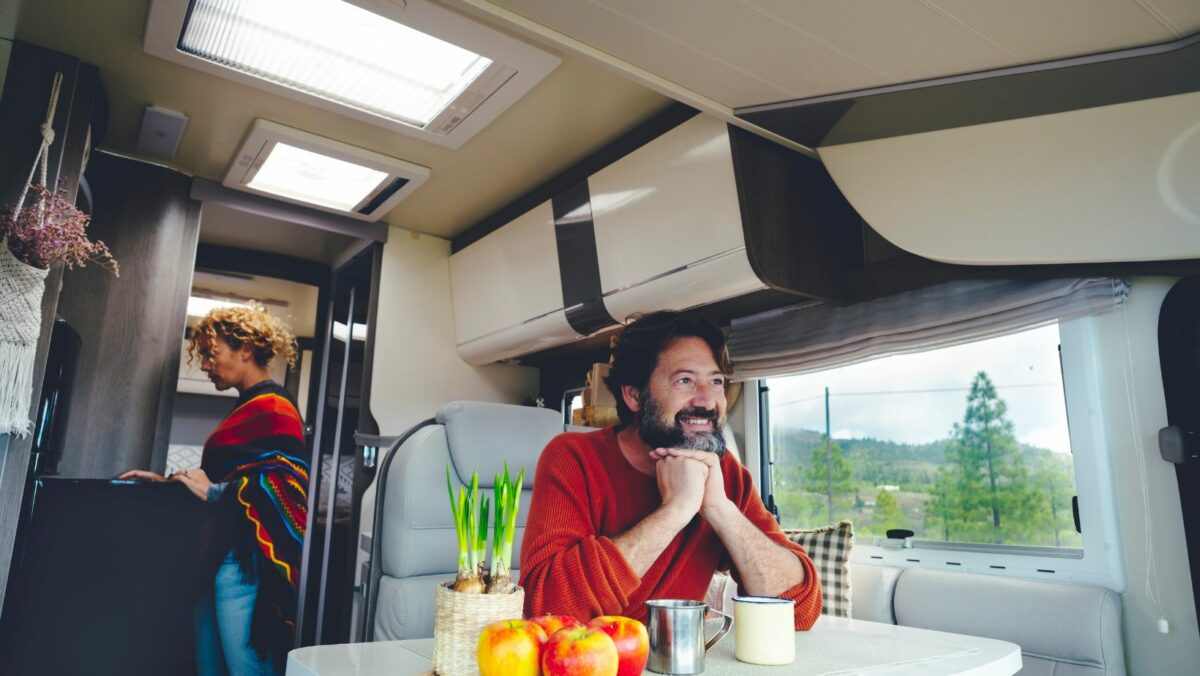There was once a time when van life was all the rage on YouTube. YouTubers would quit their jobs, buy a van, and travel around the country. They would document their journey and share their tips and tricks with viewers. However, not all of them were successful. In fact, some of them quit van life after only a few months. Let’s take a look at some of the worst van life YouTubers.
Matt and Kaya
Matt and Kaya were one of the first big van life YouTubers. They documented their travels across North America in their self-built van, and inspired a lot of people to pursue the van life dream.
However, they announced in early 2018 that they were quitting van life. They said it just wasn’t for them and that they missed the stability of a normal life.
While some people were understanding, others were critical of their decision. Some accused them of “selling out” and others said they were never really committed to the van life lifestyle in the first place.
Regardless of the backlash, Matt and Kaya made the decision that was best for them. And their story serves as a reminder that van life is not for everyone.
Alex and Mimi
Alex and Mimi were two of YouTube’s most popular YouTubers who gave up van life after only a few months. They documented their journey in a series of videos, which have since been deleted, but they shared their story in an interview with Business Insider.
According to the couple, they began to feel like they were “living in a tin can” and missed the comforts of home. They also found the constant traveling and lack of privacy to be challenging.
After only four months on the road, they decided to sell their van and return to traditional housing. While their experience is not representative of all van lifers, it does show that the lifestyle is not for everyone.
Ryker Gamble
Ryker Gamble is a YouTuber who quit van life after living in a van for just over two years. He now lives in a house in California with his wife and two cats.
In a video entitled “Why we left Van Life | Our Stories”, Ryker says that he and his wife decided to leave van life because they were no longer enjoying it. They were finding it difficult to live in such close quarters, and they missed having a space of their own.
Vanessa Marie is another YouTuber who quit van life after just six months. In a video entitled “Why I’m done with Van Life”, she says that she found van life to be very stressful and overwhelming. She also missed having her own space, and she felt like she was constantly living in someone else’s house.
These YouTubers show that van life is not always as perfect as it seems. It can be difficult, stressful, and overwhelming. If you’re thinking about trying van life, make sure you’re prepared for the challenges that come with it.
The Reasons They Quit
A lot of YouTubers have started doing videos on van life and showing their followers what it’s like to live in a van. However, some of them have quit because it’s not as glamorous as it seems. In this article, we’re going to talk about the worst van life YouTubers and the reasons they quit.
Lack of Money
One of the main reasons people quit Van Life is because they run out of money. Living in a van is not cheap, even if you are doing it on a budget. Gas, food, camping fees, repairs, and maintenance all add up. And, if you are traveling full time like most Van Lifers, you are also racking up travel expenses. All of this can quickly eat through your savings.
In order to make Van Life sustainable in the long run, it is important to have a plan for how you will make money on the road. Many people choose to work remotely, which can be a great way to earn an income while still enjoying the freedom of van life. However, it is not always easy to find remote work that pays well enough to cover your costs. Others take on odd jobs or start their own businesses while on the road. There are many creative ways to make money while living in a van, but it is important to have a plan before you hit the road.
Lack of Privacy
Living in a van comes with a lot of ups and downs, but one of the hardest things is the lack of privacy. If you need to use the bathroom, you have to do it in a public restroom or in nature. There is no such thing as a “privacy screen” when you’re living in such close quarters. This can be really tough for people who are used to having their own space.
Another downside to van life is that you’re always on the move. This can be really tough if you’re used to having a set place to call home. It’s hard to make friends when you’re constantly on the road, and it’s even harder to keep in touch with the friends you already have.
Mental and Physical Health Issues
One of the main reasons people quit living in a van is because of mental and physical health problems. For some, the constant travel and lack of stability takes a toll on their mental health. Others find that the close quarters and lack of privacy cause them anxiety. Physical health problems can also be a factor, as sleeping in a different bed every night canwear down your body. If you’re not used to living in close quarters, the lack of space can also be a major issue.
Who is van life youtuber
If you’re thinking about starting a van life YouTube channel, there are a few things you can learn from van life YouTubers who have already made it big. In this article, we’ll take a look at some of the worst van life YouTubers and what you can learn from them. From poorly planned videos to a complete lack of knowledge about van life, these YouTubers are sure to give you a few laughs – and a few tips on what not to do.
Don’t Quit Your Day Job Right Away
No one said van life was easy. In fact, most people who have tried it will tell you that it’s far from easy. It’s a lot of hard work and can be very challenging at times. But, if you’re able to stick it out, the rewards can be great.
One of the biggest mistakes that people make when they first start van life is quitting their day job right away. This is a huge mistake and can lead to disaster. If you’re not prepared mentally and financially for the challenges of van life, you’re likely to fail.
It’s important to have a plan and to be prepared for the challenges that you’ll face. quitting your job and jumping into van life without a plan is a recipe for disaster.
Make Sure You’re Ready for the Lifestyle Change
Are you thinking about becoming a van life YouTuber? Before you make the jump, there are a few things you should know.
For starters, the van life community is huge and growing every day. There are all sorts of people living in vans, from young couples just starting out to retirees enjoying their golden years on the open road.
That being said, it’s not all rainbows and butterflies. Van life can be tough, especially if you’re not prepared for the lifestyle change. Here are a few things you should know before you become a van life YouTuber.
1. Van life is a big commitment.
If you’re thinking about becoming a van life YouTuber, you need to be prepared for a big commitment. Living in a van is a lot different than living in a house or an apartment, and it’s not something that you can just dip your toe into.
2. It’s important to have your finances in order.
One of the biggest challenges of van life is managing your finances. When you’re living on the road, you don’t have the samestable income that you would if you were working a traditional job. That means that it’s even more important to have your finances in order before you make the jump to van life.
3. You need to be comfortable with uncertainty.
Another big challenge of van life is dealing with uncertainty. When you’re on the road, things can change rapidly and unexpectedly. That means that you need to be comfortable with uncertainty and be able to roll with the punches.
4. It’s important to have a support system in place.
Have a Backup Plan
No matter how carefully you plan, van life will always come with its challenges. That’s why it’s important to have a backup plan.
For example, what will you do if your van breaks down? What if you get sick or injured and can’t continue your travels?
It’s important to have a few different contingency plans in place so that you can continue your travels even if things don’t go according to plan.
One van lifer who is particularly good at this is Maddie of the YouTube channel Made for More. Maddie has been living in her van for over a year now, and she has had to deal with her fair share of challenges.
However, she has always had a backup plan in place so that she can continue her travels even when things go wrong. For example, when her van broke down, she was able to continue her travels by renting a car. And when she got sick, she was able to find a place to stay and recuperate until she was feeling better.
Maddie’s willingness to always have a backup plan has allowed her to keep traveling even when things haven’t gone according to plan. And that’s something we can all learn from.

